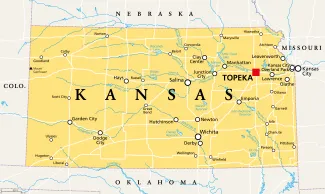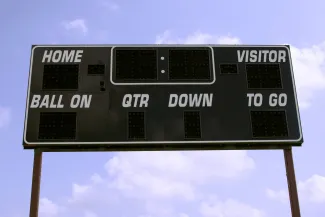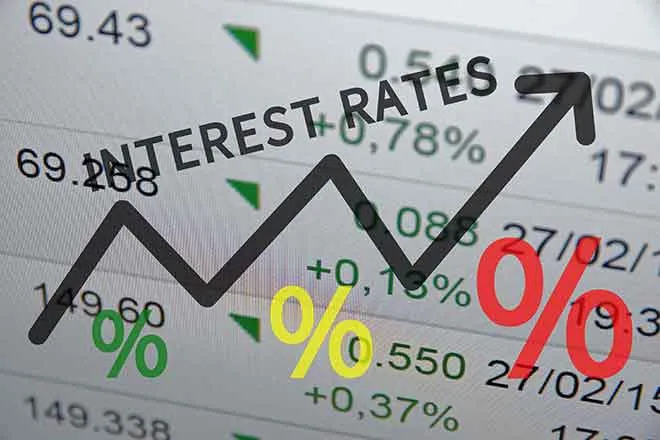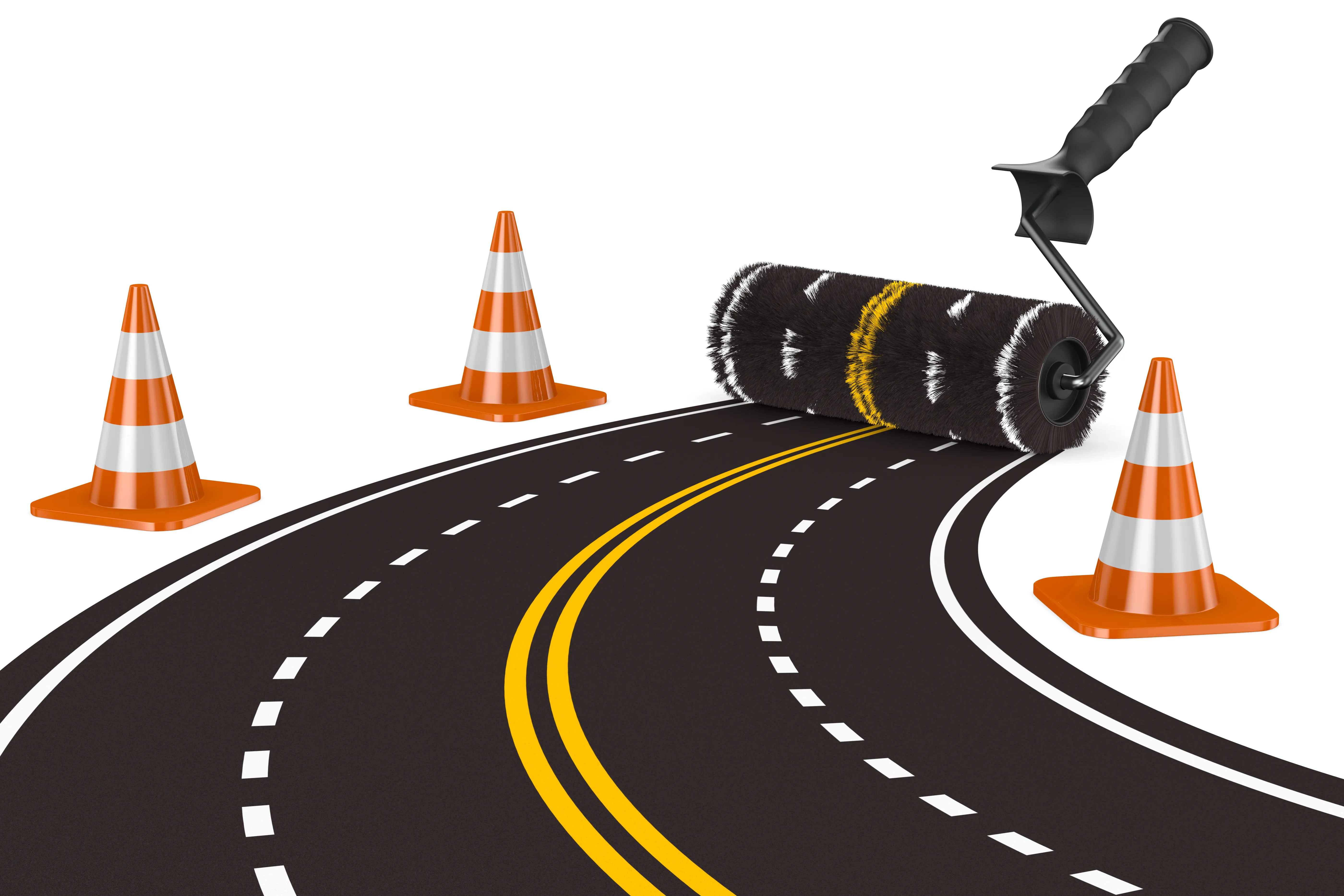
Chiefs weigh stadium in Kansas, but economist doubts economic gains
The Kansas City Chiefs put out a request for proposals to design a new stadium on the Kansas side of the state line with Missouri and are negotiating for land near the Kansas Speedway, according to two reports from Kansas City area talk show hosts.
Pete Mundo of KCMO talk radio broke the news that the Chiefs contacted multiple firms regarding a new stadium to be built at Interstate 435 and Interstate 70. He said the news was confirmed by several sources.

© PeterHermesFurian - iStock-1352430281
Mundo stressed that the RFP didn’t mean the Chiefs had selected Kansas as the location for a new stadium and added that his “gut” said they would stay in Missouri.
On Monday, Kevin Kietzman said on his podcast that the Chiefs are in negotiations with NASCAR and the state of Kansas to acquire land just west of the Kansas Speedway. He said the Chiefs also may be building a hotel by the Hollywood Casino and creating an entertainment district.
“NASCAR owns a total of 880 acres of land at Village West, folks,” Kietzman said. “They only use 300 of them.”
Patrick Lowry, spokesman for the Kansas Department of Commerce, said major development projects require confidentiality and the agency has no comment on negotiations regarding the stadium.
“Kansas Department of Commerce continues to conduct a careful analysis of costs and benefits as part of crafting agreements to keep the Chiefs and Royals in the region while maximizing growth opportunities for Kansas,” Lowry said.
The Kansas Legislature agreed to finance up to 70 percent of the project, with a minimum $1 billion price tag, by issuing bonds to be repaid with sales tax collected in the STAR Bond district.
Wyandotte opportunity
The possibility of moving the Chiefs stadium across the state line has both excited and concerned Kansas leaders. In Wyandotte County, where the Village West area is located, an economic development leader is hesitant to talk about what the stadium might bring to his county, although he’s positive that location would be a strong one for the Chiefs.
“I think that area is the No. 1 tourist destination in the state of Kansas,” said Greg Kindle, president of the Wyandotte Economic Development Council. “There’s infrastructure and highway infrastructure. We know there’s an ability to get people in and out of major sporting events, and if we can put a deal together that works for everybody, it’s a win-win.”

Much still needs to be assessed in terms of the economic development benefits for Wyandotte County.
“We’re still working through the economics of it,” Kindle said. “It has to be revenue development that works for the sports teams but also drives revenue into the community. On the front end, it’s super exciting to have a national sports team in your community because you get a lot of branding, you get more tourism, you get people who are excited about being near that environment.”
Kindle referred to the success of the Kansas Speedway and Sporting KC, both of which are in the area and hold numerous events all year.
“Tourism areas benefit,” he said. “New things have to be happening. This would be an interesting additional asset to the area that we hope would bring in additional hotels and restaurants and interest in that area.”
Kindle said the negotiations with the Chiefs are going on through state officials and Wyandotte has offered support as needed. He’s excited about the idea the team may come to his county, but he also wants to encourage everyone to think long-term.
“They’ve been in their current location for what, 50 or 60 years. We want to make sure that whatever happens here builds on what they’ve done and the success that they’ve had, but also that we ensure that we do, in fact, get that ancillary growth that goes with the project,” Kindle said.
Stadium investments
J.C. Bradbury, an economist and professor at Kennesaw State University in Georgia, is releasing a book next year titled “This One Will be Different: False Promises and Fiscal Realities of Publicly Funded Stadiums.”
He said economic justifications for putting tax dollars behind stadium development don’t hold up.
Economists look at economic development differently than other professionals, who consider the process about increasing business activity in a community, Bradbury said.
“Economists use the term economic development to describe improving economic outcomes. And stadiums are absolutely not true economic development catalysts,” he said.

© JIMMYP61 - iStock-139533156
Bradbury said he has looked for studies that show there is an economic benefit to stadiums and hasn’t found one.
“If you went and called a doctor for a study on the dangers of smoking, you wouldn’t be able to find a doctor who would say smoking is good for you, right?” Bradbury said. “If you would ask economists about the economic benefits of stadiums, you probably couldn’t find an economist who would say that they’re beneficial. But no one wants to listen to economists on that.”
Multiple changes happen in communities when stadiums are built that lead people to believe the economy benefits, he said. Increased spending definitely happening around the stadium, but Bradbury said that spending is pulled from restaurants and stores not in the stadium’s entertainment sphere.
Other factors include being unable to track businesses that don’t open up in a stadium district, such as doctor’s offices and retail stores, because of traffic and people who don’t want to live near stadiums, he said.
“There’s actually some negative spillover effects that no one likes to talk about,” Bradbury said. He gave an example of an area in Atlanta that was near where stadiums were formerly located. For years, it was a “ghost town,” but after stadiums moved, it is now a thriving commercial district.
There are positives, including the novelty effect when the stadium first opens, Bradbury said.
“This is a private business that largely benefits the owners of the team. It’s generating hundreds of millions, if not billions, of dollars,” Bradbury said. “Athletes are paid millions of dollars of salaries. These organizations exist as economic entities because they’re profitable. There’s zero justification for taxpayers putting a dime for professional sports stadiums, but we just sort of got in the habit of doing that, and now I’m hoping to try to break this habit.”

















